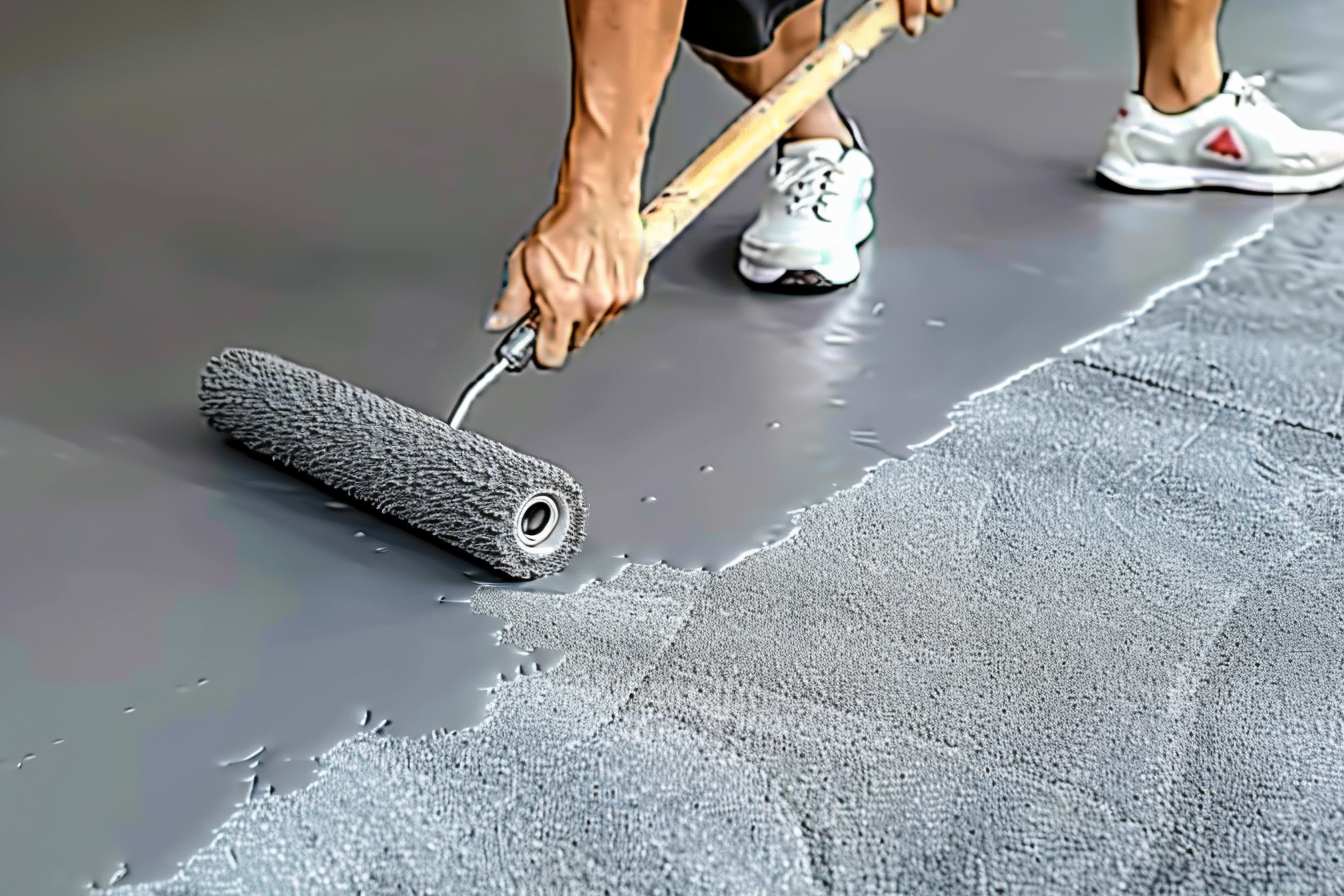No-Install Garage Flooring Choices with 2025 US Price Guide
Did you know you can easily transform your garage floor quickly and without tools? Discover practical no-install flooring solutions that save valuable time and money while enhancing durability, comfort, and overall aesthetics for your garage space, creating a stylish and functional environment effortlessly.

Understanding No-Install Garage Flooring
No-install garage flooring refers to flooring solutions that can be applied or placed on existing concrete surfaces without permanent adhesion or complex installation procedures. These options typically include rollout mats, interlocking tiles, and temporary coating systems that don’t require professional installation. The appeal of these systems lies in their versatility—they can be removed, replaced, or reconfigured as needed, making them ideal for renters or homeowners who prefer non-permanent solutions. Additionally, most no-install options provide immediate usability, eliminating the downtime associated with traditional epoxy or polyaspartic coating systems that require curing periods.
Popular No-Install Garage Flooring Types for 2025
Several no-install garage flooring options continue to dominate the market in 2025, each offering distinct advantages for different usage scenarios. Interlocking floor tiles remain a favorite due to their modular nature, allowing for custom patterns and easy replacement of damaged sections. These tiles come in various materials including polypropylene plastic, PVC, rubber, and composite blends. Another popular option is garage floor mats or rolls, which provide seamless coverage and are typically made from vinyl, polyvinyl, or rubber compounds. These roll-out solutions offer quick installation and excellent moisture resistance. Temporary coating systems that use water-based epoxies or acrylic sealers provide a middle ground between permanent coatings and truly temporary solutions, offering some protection without permanent bonding to the concrete substrate.
Choosing the Right No-Install Garage Flooring
Selecting appropriate no-install garage flooring depends on several factors including intended usage, local climate, existing floor condition, and budget constraints. For high-traffic garages that house vehicles regularly, interlocking tiles with sufficient weight capacity and chemical resistance are preferable. Homeowners in regions with significant temperature fluctuations should consider products specifically designed to withstand expansion and contraction. Moisture issues require flooring that allows airflow underneath to prevent mold and mildew accumulation. Additionally, aesthetic preferences play a role, as these flooring options come in various colors, textures, and patterns to complement different garage designs. The level of DIY skill required also varies between products, with some mats and tiles requiring minimal technical knowledge while temporary coating systems may demand more careful application.
Durability and Maintenance Advice for No-Install Garage Flooring
While no-install options generally don’t match the longevity of permanent coating systems, many contemporary products offer impressive durability when properly maintained. Interlocking tiles typically last 10-15 years with proper care, while quality garage mats often provide 5-10 years of service. Maintenance requirements vary by material, but most systems benefit from regular sweeping and occasional washing with mild cleaning solutions. Avoid using harsh chemicals or petroleum-based cleaners on plastic tiles or vinyl mats, as these can cause deterioration over time. For flooring in high-moisture environments, periodic lifting to allow the concrete underneath to dry prevents trapped moisture problems. Winter salt and road chemicals should be promptly cleaned from any temporary flooring to prevent damage and discoloration. Additionally, heavy equipment or vehicle jacks may require protective pads to prevent indentations in softer flooring materials.
2025 US Pricing Summary for No-Install Garage Flooring
The cost of no-install garage flooring varies significantly based on material quality, thickness, and coverage area. Understanding current market rates helps homeowners budget appropriately for their garage renovation projects.
| Flooring Type | Material | Average Cost (per sq ft) | Estimated Total for 2-Car Garage |
|---|---|---|---|
| Interlocking Tiles | Polypropylene Plastic | $3.50-$6.00 | $1,400-$2,400 |
| Interlocking Tiles | PVC/Vinyl | $4.00-$8.00 | $1,600-$3,200 |
| Interlocking Tiles | Rubber | $6.00-$12.00 | $2,400-$4,800 |
| Roll-Out Mats | Vinyl | $2.50-$5.00 | $1,000-$2,000 |
| Roll-Out Mats | Polyvinyl | $3.00-$7.00 | $1,200-$2,800 |
| Roll-Out Mats | Rubber | $4.00-$9.00 | $1,600-$3,600 |
| Temporary Coating Systems | Water-Based Epoxy | $2.00-$4.00 | $800-$1,600 |
| Temporary Coating Systems | Acrylic Sealer | $1.50-$3.00 | $600-$1,200 |
Prices, rates, or cost estimates mentioned in this article are based on the latest available information but may change over time. Independent research is advised before making financial decisions.
Installation and Removal Considerations
Even with no-install flooring options, proper preparation maximizes performance and longevity. Before placement, thoroughly clean and dry the concrete substrate, removing oil stains and loose debris. Many interlocking tile systems require a small expansion gap around the perimeter to accommodate temperature-related size changes. For roll-out mats, acclimating the material to room temperature before installation prevents warping or bubbling. Most no-install systems require minimal tools—typically just a utility knife for trimming edges and possibly a rubber mallet for securing interlocking connections. When it comes to removal, these flooring options can typically be disassembled and stored for future use, representing an advantage over permanent solutions. This removability also facilitates cleaning underneath the flooring periodically, extending the life of both the flooring product and the concrete substrate.
The growing popularity of no-install garage flooring reflects homeowners’ increasing desire for flexible, cost-effective solutions that can adapt to changing needs. With options spanning various price points and performance characteristics, these temporary systems offer viable alternatives to permanent coatings while providing many of the same aesthetic and functional benefits. By carefully assessing specific requirements and understanding the strengths and limitations of each option, homeowners can select no-install flooring that delivers excellent value while enhancing their garage space.




